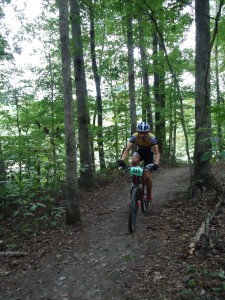The Lance Armstrong doping scandal is heard loud and clear, but it also didn’t surprise his fellow cyclists at the Western Carolina community.
After years of accusations of using performance enhancing drugs, Lance Armstrong finally admitted to doping during an Oprah interview. The interview aired over two nights, Jan. 17 and 18 on the Oprah Winfrey Network. Armstrong has been stripped of his seven Tour De France titles, his bronze Olympic medal from the 2000 Sydney games and has been banned for life from the International Cycling Union.
The WCU Cycling Team has a strong presence here on campus and you may have seen them riding around to prepare for their next race.
“I think doping is a very serious problem in the sport of cycling, although the sport has done a lot in the last few years to stop doping, it is still not uncommon to hear of a cyclist getting caught,” said sophomore, Dylan Walton who has been on the WCU Cycling Team since his Freshman year.
“I am not surprised to find out that he was cheating. During that period of time the vast majority of the competitors were using performance enhancing drugs, including members of his own team. Even though he is an amazing athlete I have always thought it was a bit strange that he could ride faster than so many guys who were doping. I think Armstrong is being made an example of because of his notoriety,” said Walton.
Walton is right since many decorated cyclist admitted to doping and have been stripped of awards, we can only wonder where the sport stands today when dealing with the issue of doping.
“Armstrong made the sport of cycling so popular here in the United States and now that it is so popular I do not predict any negative changes in the future of professional cycling or on a recreational scale,” said sophomore, Nick Lacombe, vice-president of the WCU Cycling Team.
The sport of professional cycling has underwent recent changes with a stronger emphasis on anti-doping. In the Lance Armstrong interview, he mentioned the new “biological passport” test the UCI is using that is doing more to combat blood doping in the sport. The biological passport is a unique individualized electronic report of pro cyclists that notes variances in their levels of banned substances over a period of time, rather than simply testing for one illicit substance. USA Cycling, the governing body of racing in the United States, is issuing anti-doping pamphlets with race licenses to inform racers of their stance as well. Many professional teams have taken an aggressive position against doping in recent times. The Dutch bank Rabobank that has sponsored pro cycling teams for 28 years has ended sponsorship due to the rampant doping in pro cycling.
The public’s knowledge of doping in pro cycling and the advocacy of professional teams and sponsors to clean up the sport will with any hope make the sport more fair and on a level playing field. Only time will tell if blood doping in cycling is truly a thing of the past and that the sport can move on into a new era, making scandals such as Armstrong’s a thing of the past.



